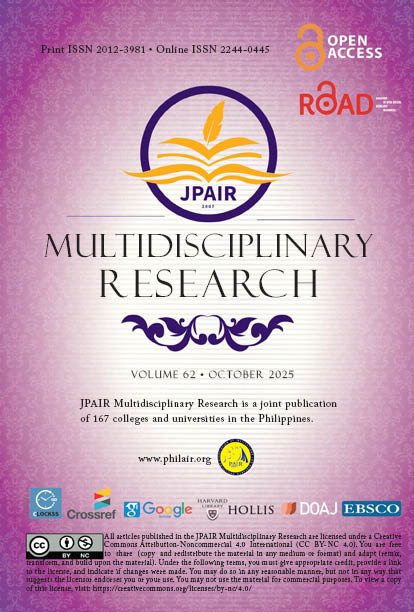Evaluating Capacity-Building through Literature: A Review of Studies on the Training and Development of Cooperative Development Officers in the Philippines
DOI:
https://doi.org/10.7719/jpair.v62i1.960Keywords:
Cooperative Development Authority, Cooperative Development Officers, adult learning, training evaluation, demographic profiles, CDA Training program, competency-based developmentDisciplines:
Adult Education, Training EvaluationAbstract
In the Philippines, the professionalization of Cooperative Development Officers (CDOs) has been institutionalized through the implementation of Republic Act No. 11535, which was signed into law on April 9, 2021, and Memorandum Circular No. 2023-12, issued by the Cooperative Development Authority (CDA). The purpose of this study is to evaluate the available research on CDO training, with a particular emphasis on adult learning principles, training evaluation systems, and the connection between demographic profiles and training outcomes. The analysis highlights important frameworks, including Kirkpatrick's Four-Level Evaluation Model, Knowles' Adult Learning Theory, and the CIPP (Context, Input, Process, Product) Model, by using a thorough literature review process. These models are crucial resources for assessing the efficacy of training, directing ongoing development, and guaranteeing that the results apply to regional situations. This study highlights essential themes that inform the design, delivery, and evaluation of CDO capacity-building programs by employing a systematic approach to analyze scholarly works and official issuances. Other sources of information that are reviewed include government publications. The findings underscore the importance of being sensitive to demographics, implementing tailored instruction, and evaluating students based on their achievements. In conclusion, the article offers recommendations that can guide future program enhancements, aligning with the aims of inclusive competency-based development.
Downloads
References
Australian Public Service Commission. (2021). Learning and development strategy: Building capability for the future. https://www.apsc.gov.au/
Cooperative Development Authority. (2023). CDA Memorandum Circular No. 2023-12: Framework for evaluating training programs for CDOs. https://www.cda.gov.ph
Colquitt, J. A., LePine, J. A., & Wesson, M. J. (2017). Organizational behavior: Improving performance and commitment in the workplace (5th ed.). McGraw-Hill Education.
Downloads
Published
Issue
Section
License
Copyright (c) 2025 Emerlita P. De Jesus, Darriela Lane H. Estrada, Clarence G. Garces, Josue Jr. J. Sotoza, Ralph Rendell P. Toledo

This work is licensed under a Creative Commons Attribution-NonCommercial 4.0 International License.
Open Access. This article published by JPAIR Multidisciplinary Research is licensed under a Creative Commons Attribution-Noncommercial 4.0 International (CC BY-NC 4.0). You are free to share (copy and redistribute the material in any medium or format) and adapt (remix, transform, and build upon the material). Under the following terms, you must give appropriate credit, provide a link to the license, and indicate if changes were made. You may do so in any reasonable manner, but not in any way that suggests the licensor endorses you or your use. You may not use the material for commercial purposes.





















